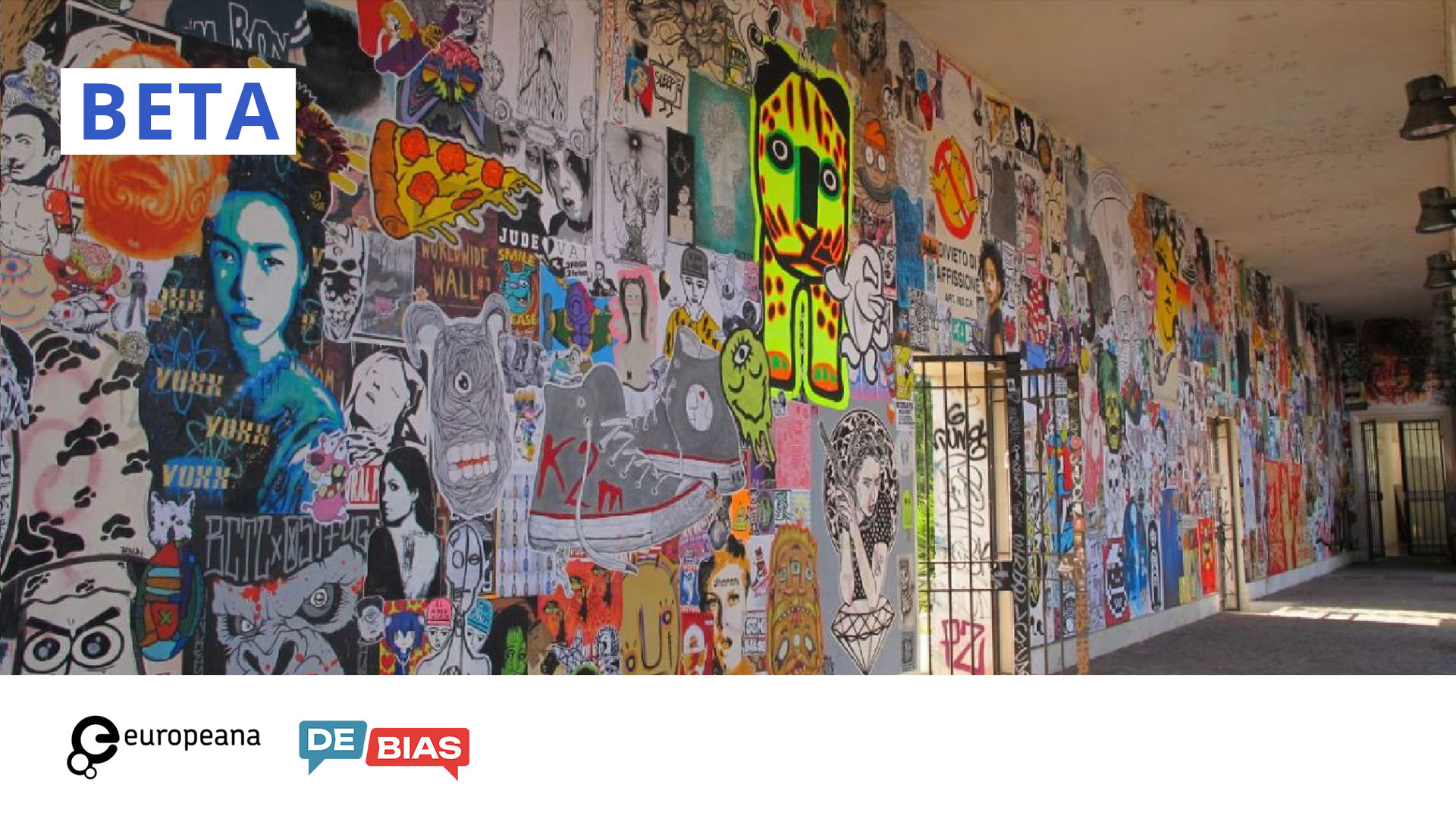About This Course
This course teaches you what bias in cultural heritage collections is, why it is important to digital cultural heritage, and how to identify and work with bias in digital cultural heritage collections.
As part of this training session, you will work with texts containing terms and language, which could be considered derogatory or contentious, and with images, which might be experienced as harmful or offensive.
Your discretion is advised.
NOTE: This course is still in beta and has not gone through user tests yet. Changes to the course structure and/or material can be made as long as it is in beta.
This course has been developed by the DE-BIAS project in 2024. See the project website to learn more about the DE-BIAS project.
Cover image: Worldwide Wall - GoTellGo Cultural Association, Italy - CC BY 4.0.
Who is this course for
This course is for you if you are a:
- Cultural heritage professional who wants to learn about how to identify and work on bias in your own collections.
- Researcher who wants to learn more about the current thinking and trends in bias in digital cultural heritage.
- Culture lover who wants to learn more about the current conversations in the cultural heritage sector, and wants to know how you can contribute.
Learning goals
In this course, you will learn:
- What "bias", "contentious content", "decolonisation", "postcolonialism", "community engagement", and "co-creation" mean.
- Why cultural heritage institutions have contentious content in the first place, and how this influences digital cultural heritage.
- How to identify contentious content and metadata, and reflect on the gaps in cultural heritage collections.
- How you can engage communities with lived experience and community allies to de-bias your collections in co-creation workshops.
Requirements
For this course you will need:
- Around 4 hours of your time in total. The course consists of several modules which you do not need to complete in one sitting.
- A computer with a full HD screen (or higher) resolution. A second monitor is not required, but will make it easier to do the exercises. Parts of this course can be completed on a mobile phone or tablet.
Course Staff
Kerstin Arnold
Kerstin is the Manager and Chief Operating Officer of the aggregator Archives Portal Europe. She has been working in the archives domain for nearly 20 years, gaining expertise in a variety of areas, from academic editions via records management and transfer of born-digital materials to aggregation of cultural heritage metadata on national, international and cross-domain levels. She shares her knowledge and experience at conferences, workshops, and dedicated capacity building events.
Cristina Da Milano
Cristina is the President of ECCOM, where she has carried out research projects, training activities and consultancy at national and international level since 1995. She has been involved in several EU funded projects and studies with specific reference to cultural access, participation and audience development. She is an expert in European cultural policy and programmes. She lectures in many postgraduate courses and Masters.
Maria Teresa Natale
Maria Teresa is a senior project manager and the coordinator of the aggregator MUSEU. She has more than 20 years of experience in EU projects related to Digital Cultural Heritage and is involved in several projects of Michael Culture. Her expertise is in Education, Tourism and Digital exhibitions. Strong experience in professional training. Strong expertise in technical coordination of EU projects.
Jolan Wuyts
Jolan is a project manager and Collections Editor at Europeana Foundation. He is one of the co-founders of the Europeana Diversity and Inclusion cross-team, and has been working on European-level projects for over seven years.






